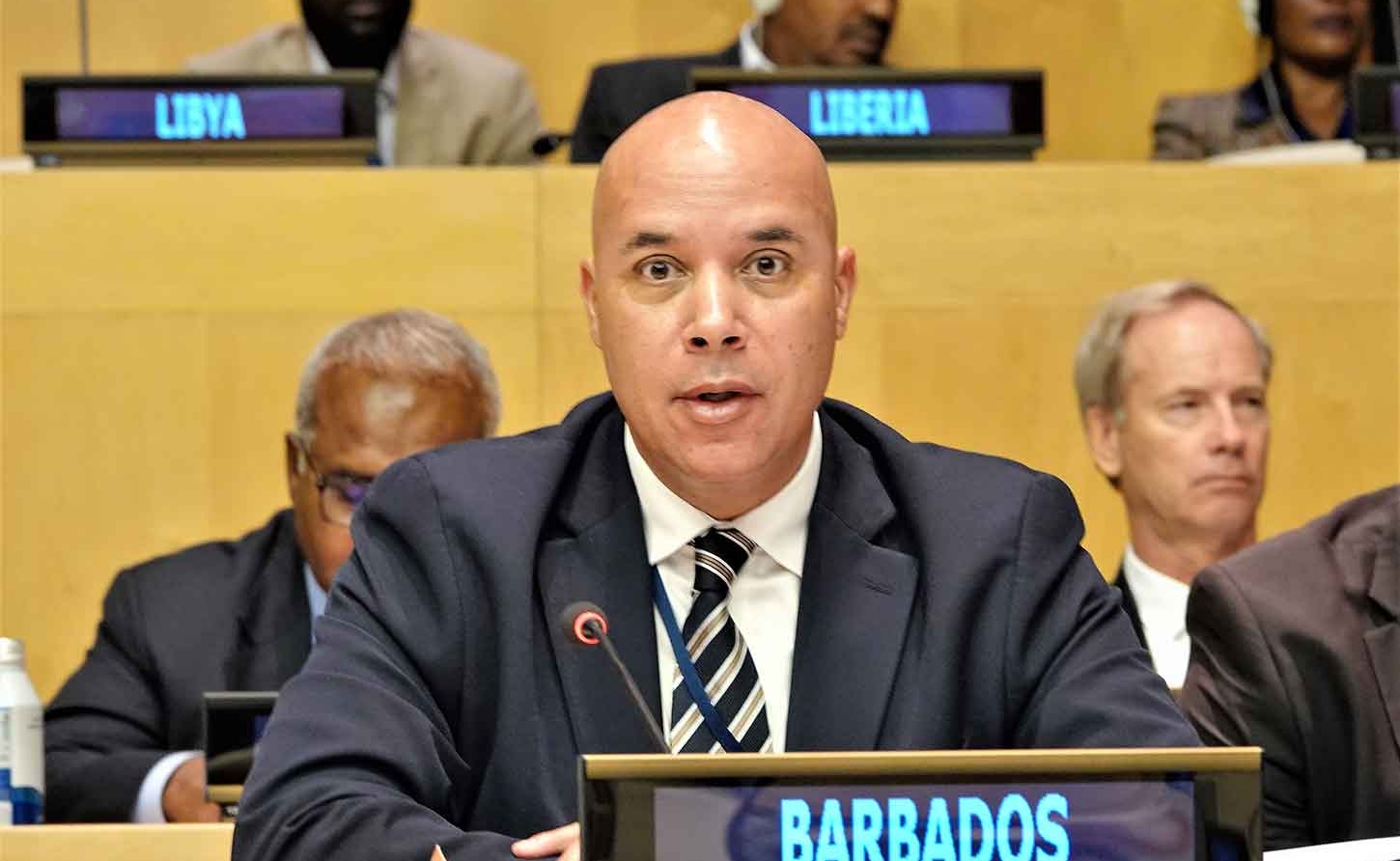CARICOM Backs Bold UN Pivot: Gang Suppression Force Marks New Chapter in Haiti Crisis

After months of deadly inaction, the Caribbean demands—and gets—a reckoning. But will 5,500 troops succeed where 1,000 failed?
The numbers tell a story of catastrophic failure: 5,601 dead in 2024 alone. Another 3,100 killed in just the first half of 2025. Ninety percent of Port-au-Prince strangled by gang control. Nearly 1.3 million Haitians displaced—one in ten of the entire population driven from their homes by violence so brutal that UN human rights chief Volker Türk called it an "unending horror story."
And until Tuesday, the international community's response? A thousand underequipped, underfunded police officers operating without the power to detain a single gang member.
That changed today when the UN Security Council finally—finally—voted to transform the moribund Multinational Security Support mission into a Gang Suppression Force, more than doubling personnel to 5,550 and granting real enforcement powers.
The vote came only after sustained pressure from Caribbean nations, who watched Haiti's crisis metastasize into a regional threat while the world's most powerful body dithered.
"Only through urgent, collective action in the security domain, in support of Haiti, can the scourge of gang violence be arrested," Barbados' Permanent Representative François Jackman declared on behalf of CARICOM's fourteen member states.
His statement carried the weight of regional exasperation—and barely concealed fury at how long this took.
Too Little, Too Late?
The Kenya-led MSS mission, deployed in June 2024 with great fanfare, was supposed to field 2,500 personnel. It never reached half that strength. Chronic funding shortfalls left officers without basic equipment.
When gangs destroyed armored vehicles meant to secure key areas, there were no replacements. Three Kenyan officers were killed in Artibonite. Not a single major gang leader was captured.
Meanwhile, the violence spread like a malignancy beyond Port-au-Prince. Between October 2024 and June 2025, more than 1,000 people were killed in the Artibonite and Centre departments as gangs extended their territorial control along key routes to the north and the Dominican Republic border.
Entire towns emptied. Mirebalais, population 100,000, saw every resident flee after gang attacks freed 515 inmates from the local prison.
The humanitarian catastrophe is staggering: 5.7 million Haitians face acute food insecurity, half the nation's population. Schools remain shuttered.
At least 243,000 children have been locked out of classrooms as a new academic year begins with no end to violence in sight.
And through it all, the MSS limped along with insufficient personnel and no authority to arrest anyone.
What Changes Now
The new Gang Suppression Force represents a fundamental shift. With up to 5,500 military and police personnel—five times the current mission's actual strength—the GSF will have explicit authority to "neutralize, isolate, and deter" gangs through arrest and detention.
It can secure critical infrastructure, support Haiti's beleaguered National Police, combat arms trafficking, and help create conditions for long-delayed elections.
The UN Support Office in Haiti will provide logistical backbone the MSS lacked—drones, transport, fuel management—funded through the UN's assessed contributions system rather than the voluntary donations that left the current mission begging for resources.
But here's the uncomfortable question CARICOM is asking but not saying aloud: Why did 6,600 deaths and 1.3 million displaced people have to pile up before the Security Council acted?
Caribbean Stakes
For CARICOM nations, this isn't abstract geopolitics—it's an existential regional crisis. As the UN's own report warned, escalating gang violence threatens to destabilize not just Haiti but other countries in the Caribbean, with expanding transnational trafficking in arms and people.
The region remembers Haiti's 2010 cholera outbreak, introduced by UN peacekeepers, that killed 10,000 and spread panic across the Caribbean basin.
Ambassador Jackman's statement carried particular weight given that just months ago, CARICOM hosted Interpol Secretary General Valdecy Urquiza at their Montego Bay summit to discuss "international cooperation" and "strengthening safety and security."
The irony of praising international mechanisms while those same mechanisms failed Haiti was not lost on Caribbean observers.
The Test Ahead
Human Rights Watch offered tentative support, noting any operation must have adequate funding and human rights protections. Russia abstained, warning of an "unrestricted mandate to use force" and calling the plan "ill-conceived and rushed." China and Pakistan also abstained.
But for Haitians living under gang terror, rushing is precisely what was needed. CARICOM's endorsement of "sustainable, predictable resourcing" and "urgent capitalization of the 2025 humanitarian needs and response plan" reads as diplomatic language for: Never again should resources determine whether children live or die.
The resolution passed 12-0. Whether the Gang Suppression Force succeeds where the MSS failed depends on whether the international community's renewed commitment outlasts the next news cycle. Haiti has heard promises before.
This time, as Ambassador Jackman made clear, CARICOM—and Haiti—are watching.
—30—
